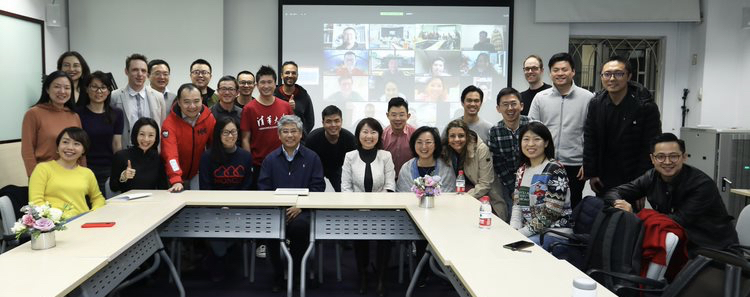
In The First Row
I have always been grateful for the high-quality education that my professors provided to me throughout my childhood and early adult life, despite the limited resources and difficult conditions they faced in Brazil.
Frankly, I wouldn’t be the person that I am today without their teachings.
Until recently, I thought that gratitude was all that I could offer to them for helping me build my future and showing me that education is one of the most efficient ways to reduce inequality.
In July 2018, I moved from Brazil to China for a position in my company’s Shanghai office. Two years later, I decided to apply for the Executive MBA programme at Tsinghua University, and in September 2020, I was in Beijing, off to my first TIEMBA class. We were around 25 students in class at that time, waiting with some anxiety for our first lecture.
This anxiety wasn’t the same as that which I used to have in my grade school and college days.
Soon after the class began, though, I finally understood that that anxiety was not about the lecture per se, but about the opportunity to be taught by one of the most well-known and respected professors of the university.
I should confess that, initially, I did not fully understand all the admiration coming from so many of my classmates. However, within the first 30 minutes of class, I was in awe of the well-known and qualified professor who stood before me, talking to us as if we had the same level of knowledge as him, and explaining some rather complicated topics in such a simple and easily digestible way. Despite his position at Tsinghua and his importance in China, he treated us with humility and equality.
It was supposed to be “just” a Macroeconomics class covering concepts such as GDP, Inflation and National Income. However, it was much more; it was an invitation for us to engage in a constructive thinking, which would help us link the concepts in the course curriculum to the real world.
This way of thinking generated countless questions, and the eight-hour class became short for such a fascinating journey.
As the end of the class approached, I became rather disappointed, because our time together was coming to an end, and I was interested in hearing even more from him.
When the class finished, my classmates and I discussed how we might be able to arrange one more meeting with the professor, to ask some additional questions or even just to listen to anything else he had to say.
In that moment, I finally realised and learned from my classmates how I should have been viewing my professors all this time. That professor knew how much we respected him and how important it was for us to be there, and he reciprocated that respect.
Although this professor has a quite busy schedule, he was gracious enough to meet us again six months after that first class. And I was there, sitting in the first row, sharing the same anxious feeling as the rest of my cohort, looking forward to hearing from him anything he wished to share.
The 90-minute session seemed so short compared to all that he had to offer us. The university’s staff informed us that the time was up, and unfortunately, we must finish our discussion; otherwise, we would be there forever! After the meeting finished, all of us hope to have another opportunity to experience his teaching again.
Thank you to my cohort, for teaching me how to fully recognise the impact of the professors on our lives. I learn every day with all of you, and am glad to be part of this select group of brilliant minds. I hope that this post will somehow reach my previous professors, so they know that China has taught me an important lesson: they deserve much more than simply gratitude.
This post was written in honour of Professor Bai Chong-en on behalf of the TIEMBA Class of 2022, to thank him for his outstanding contribution to our learning journey.





